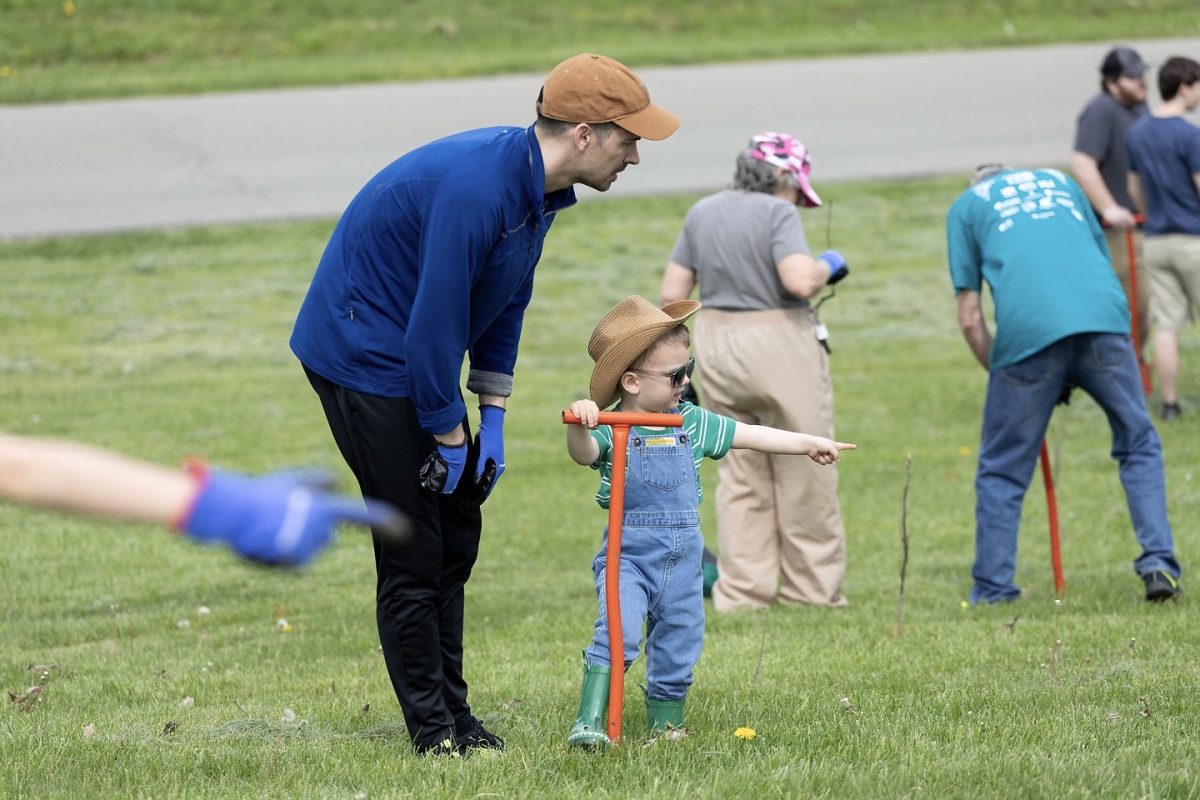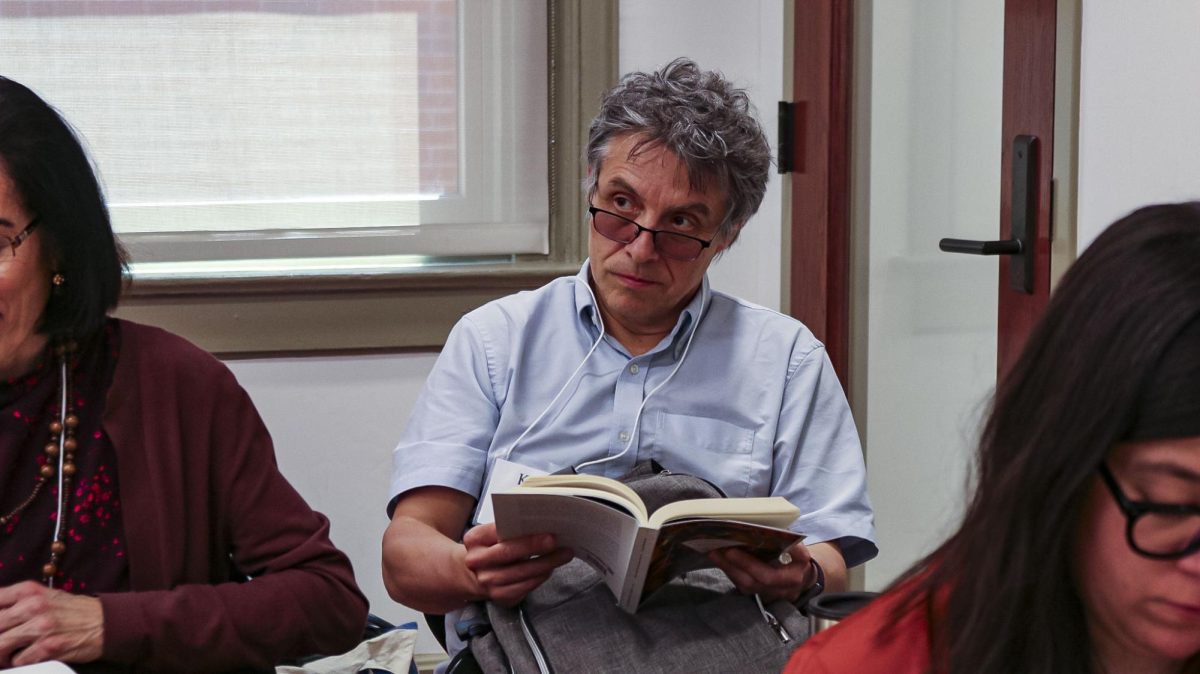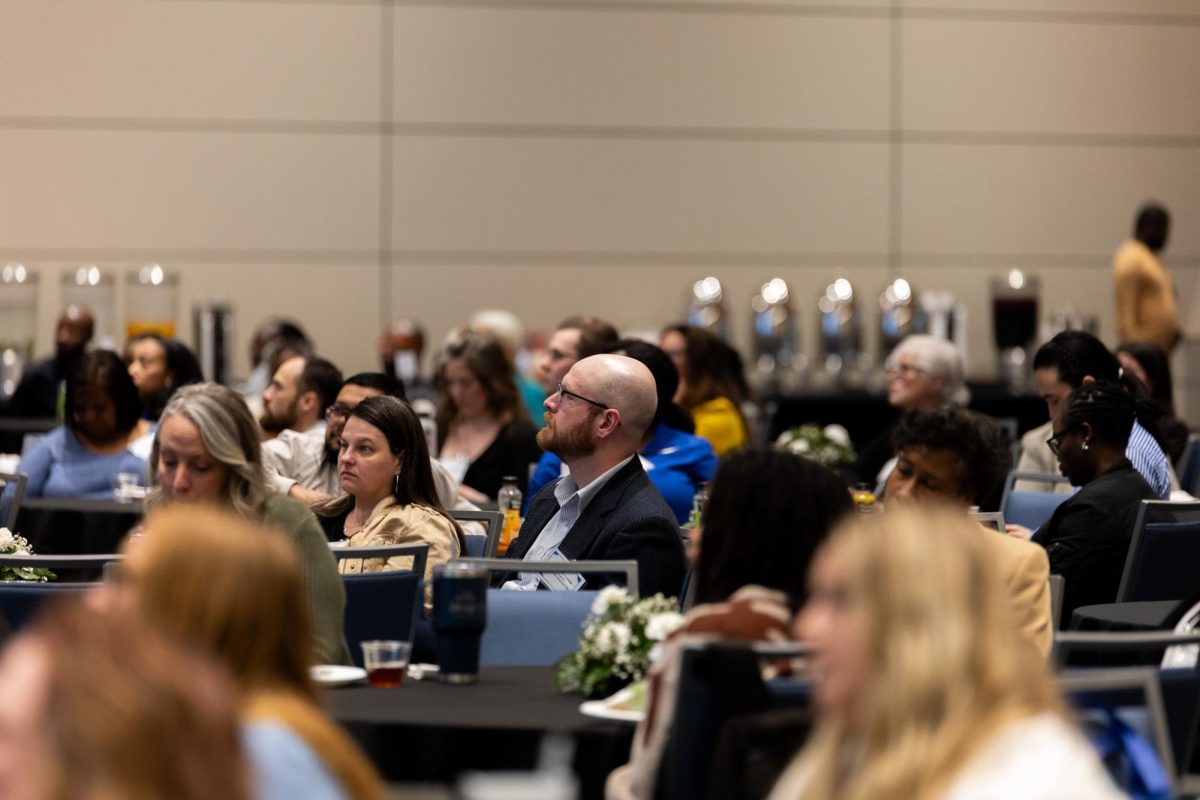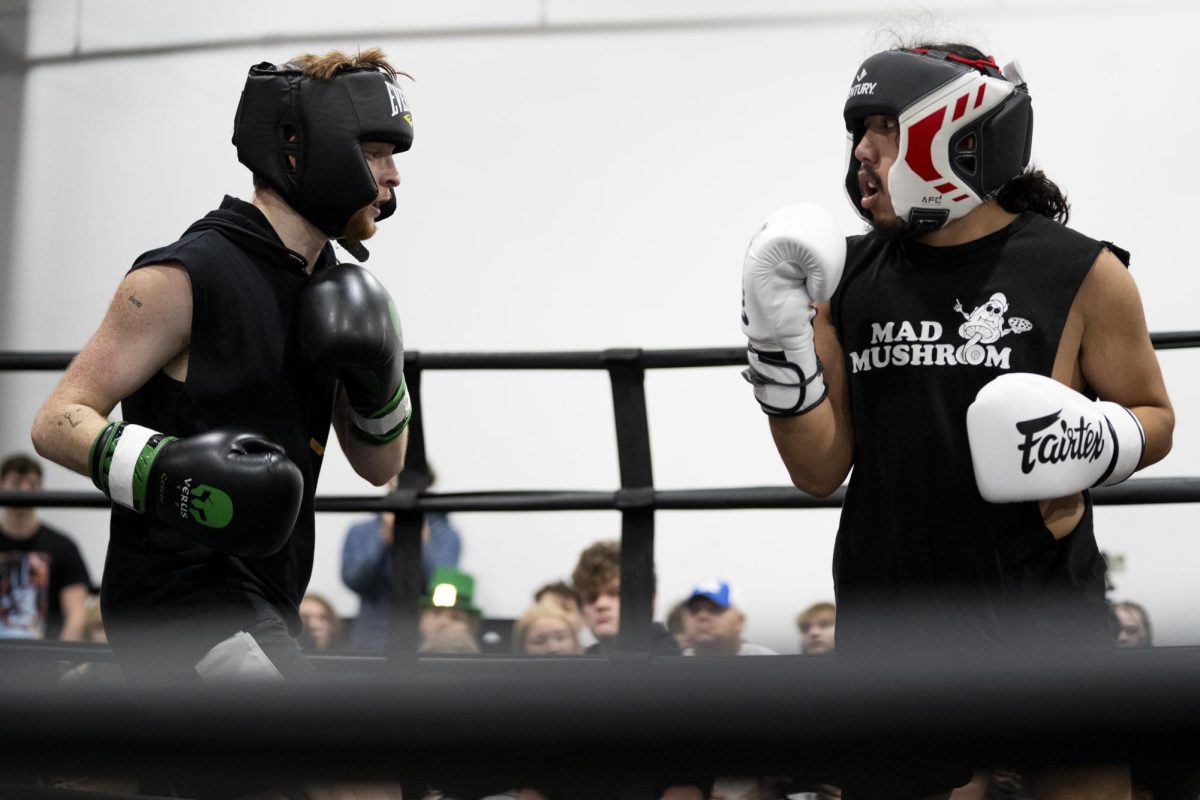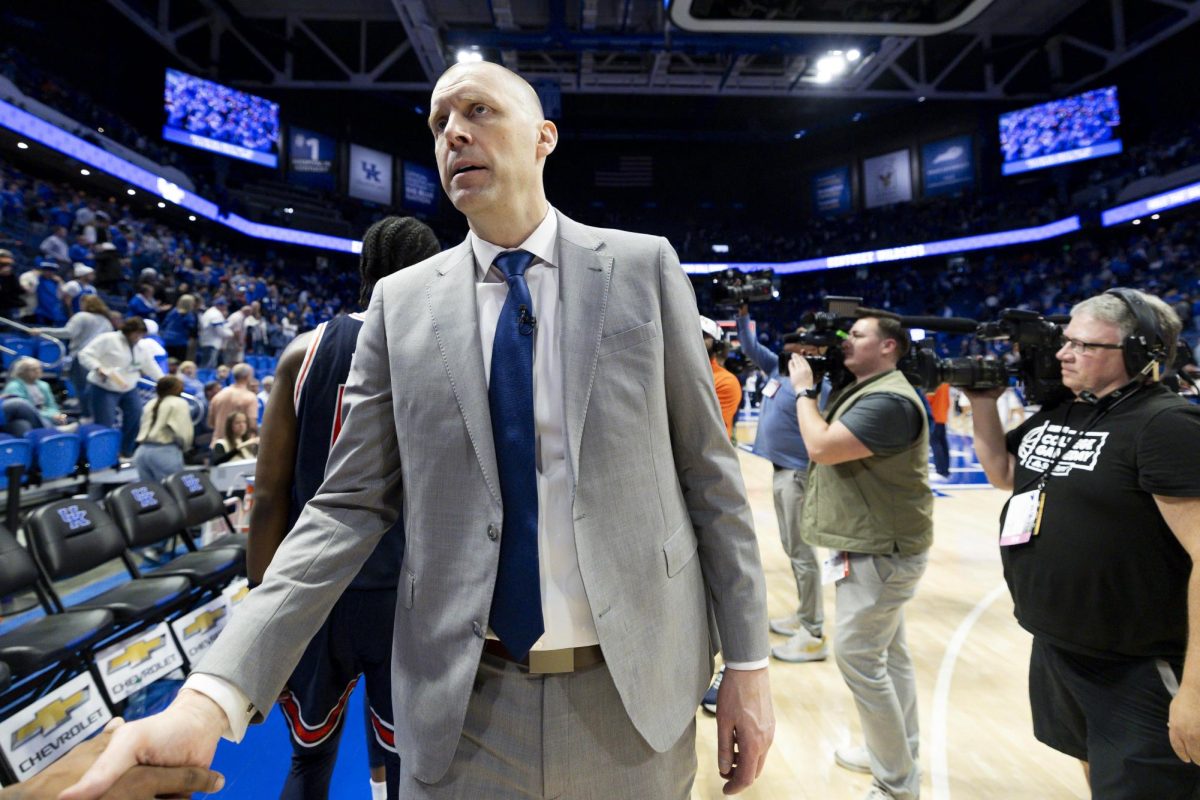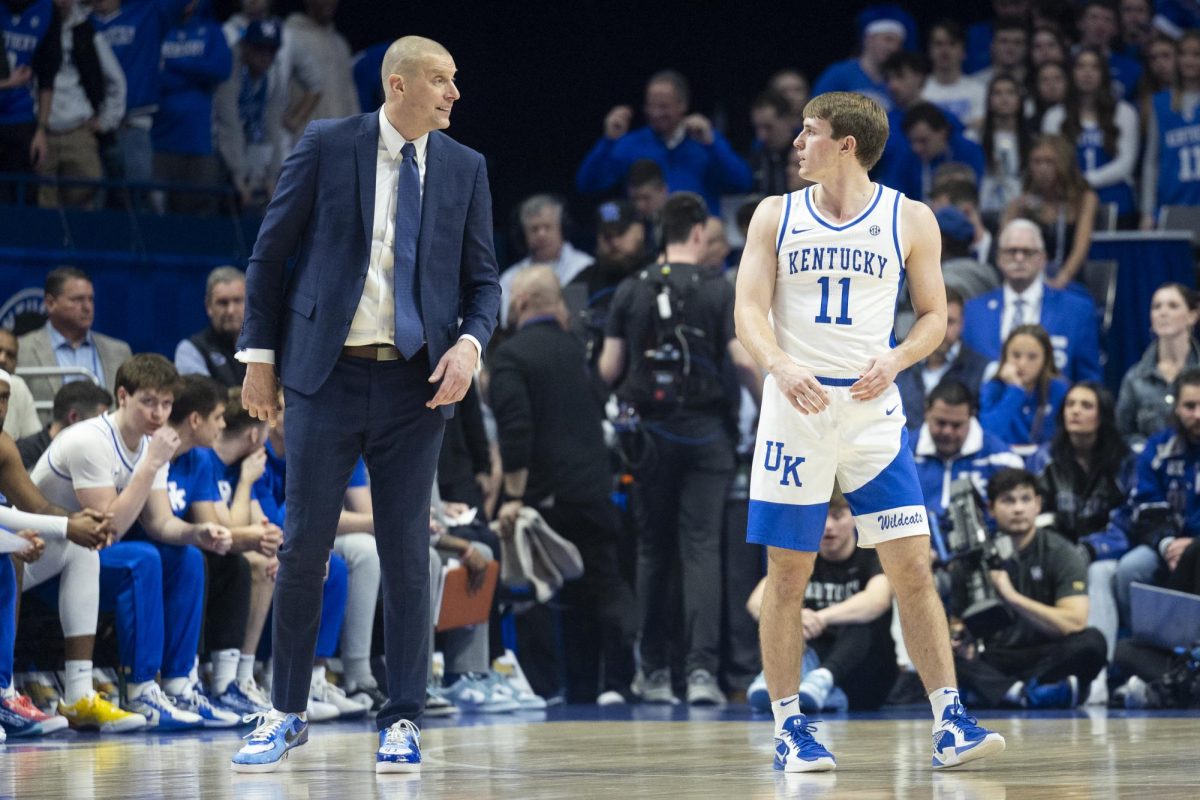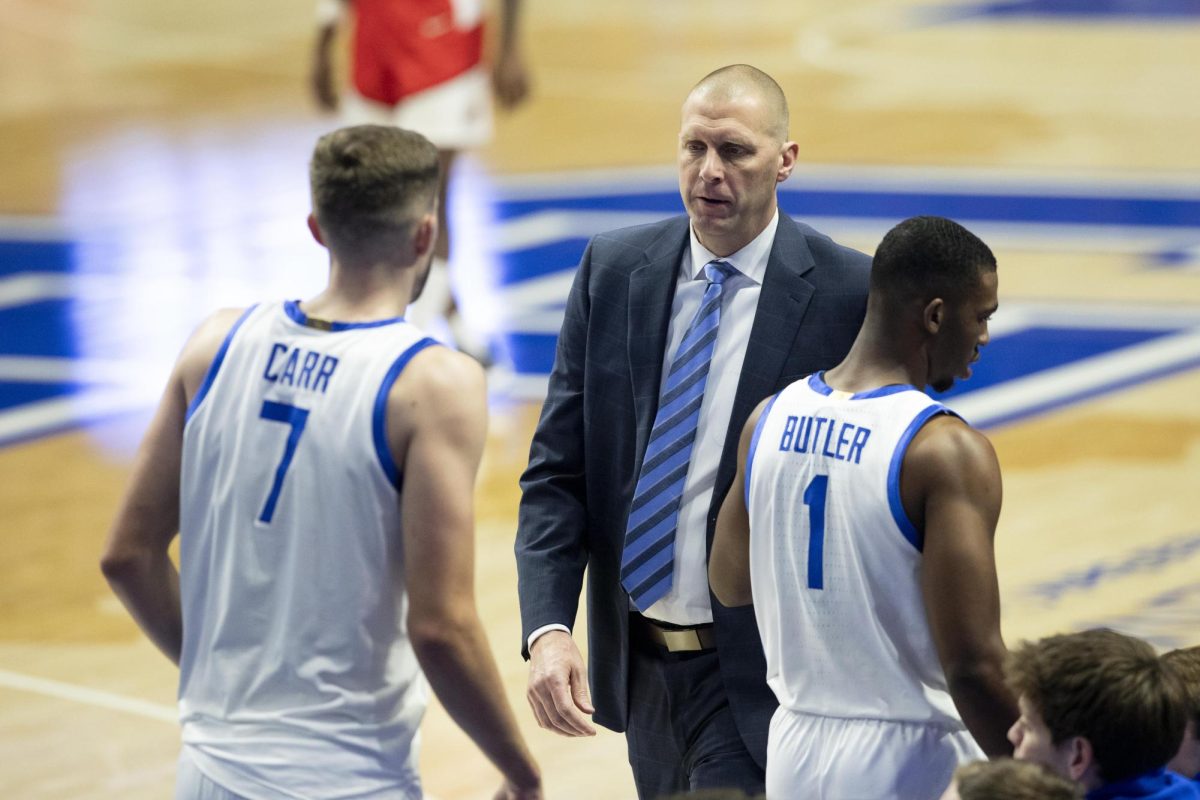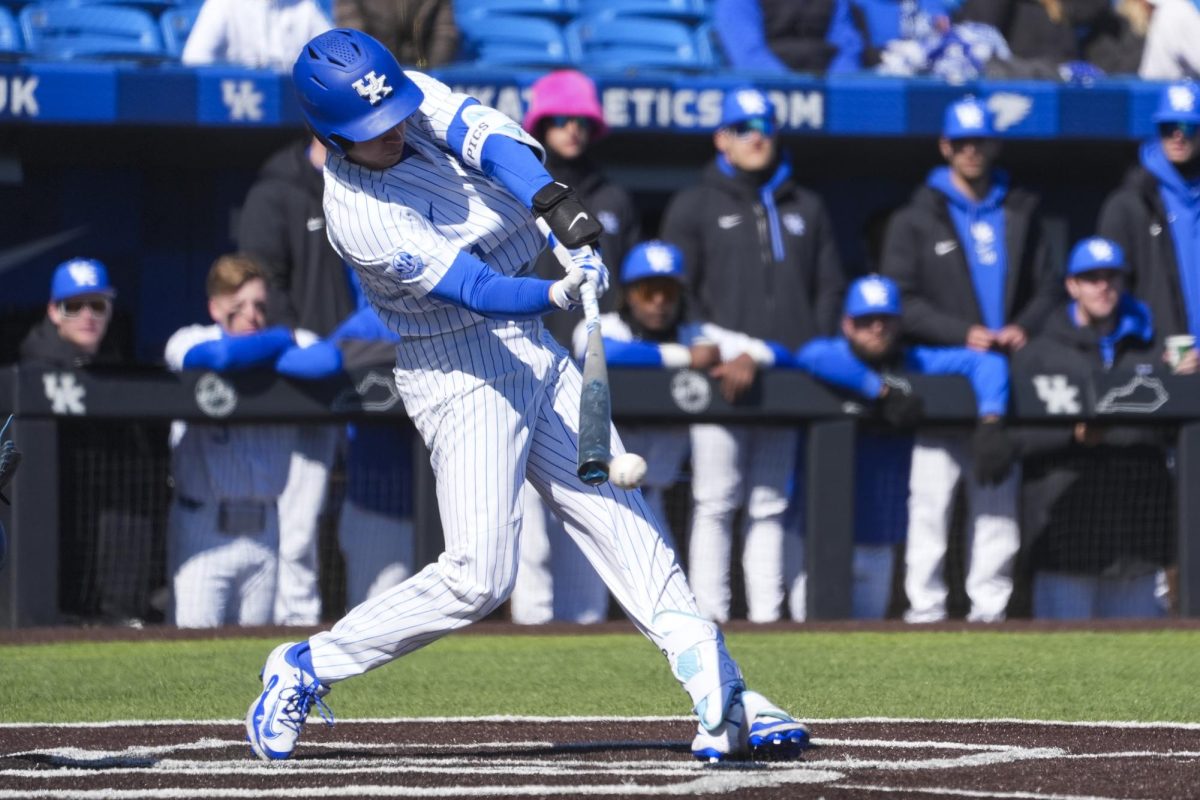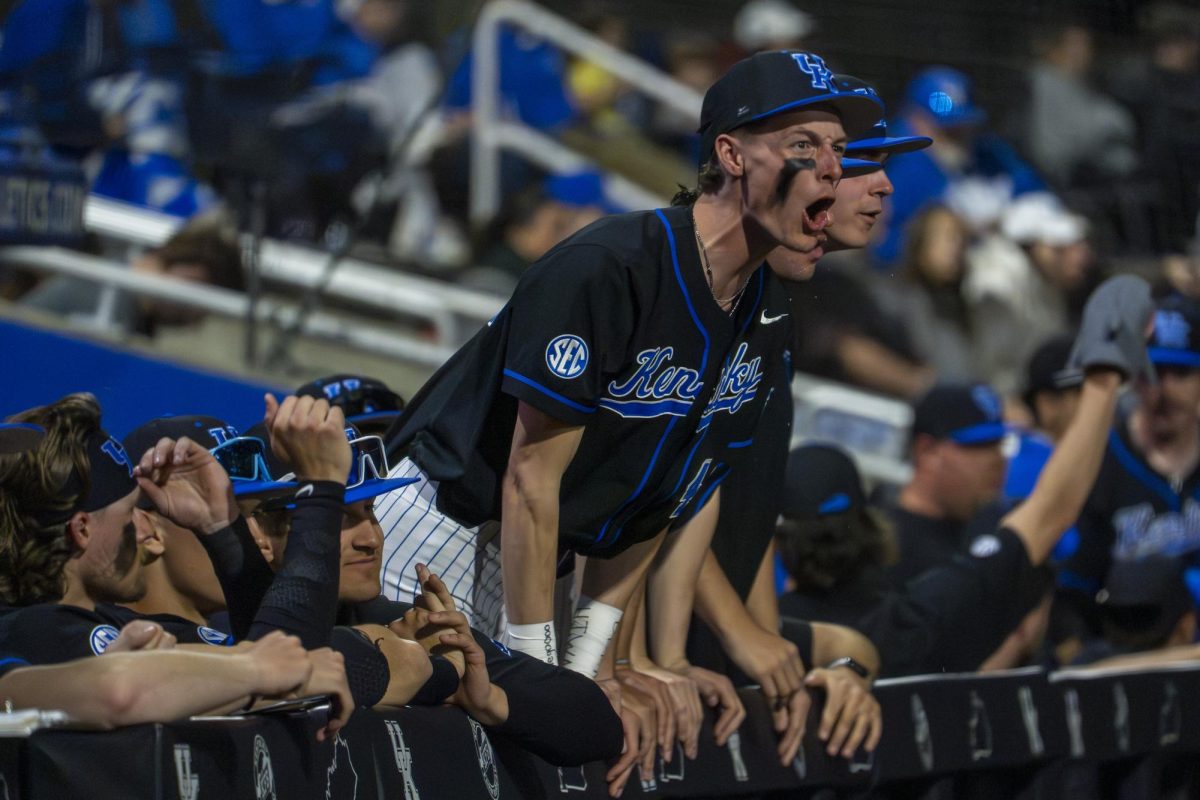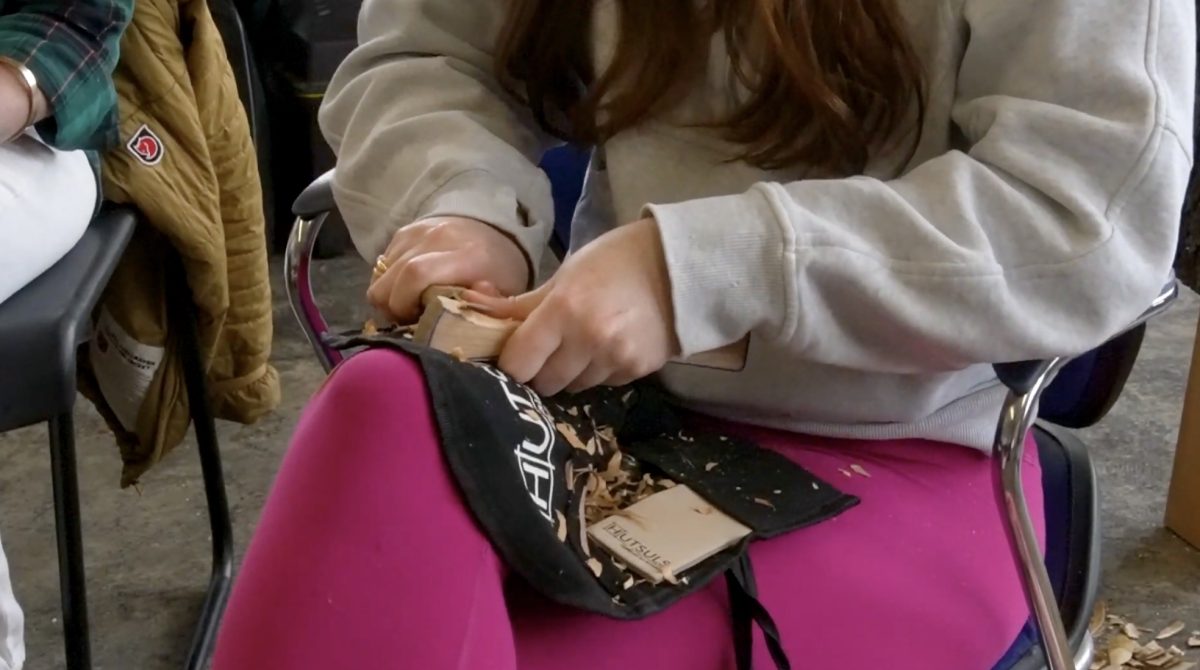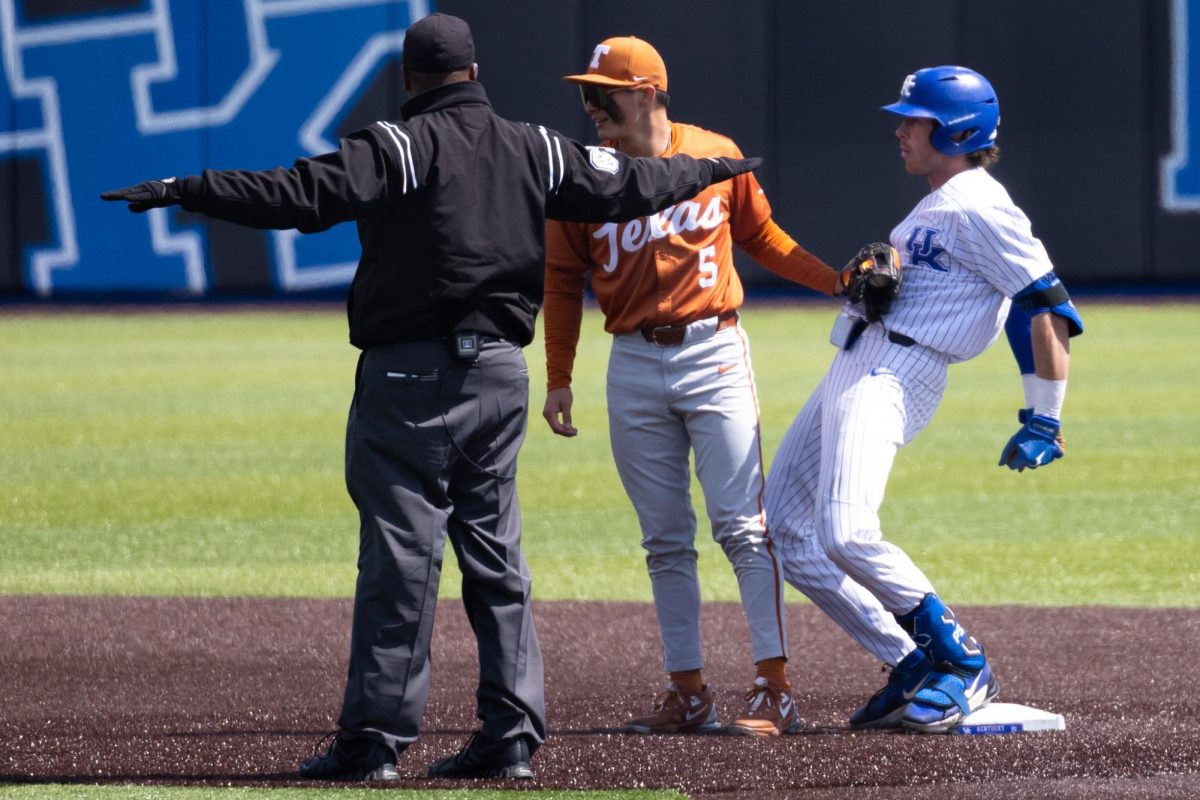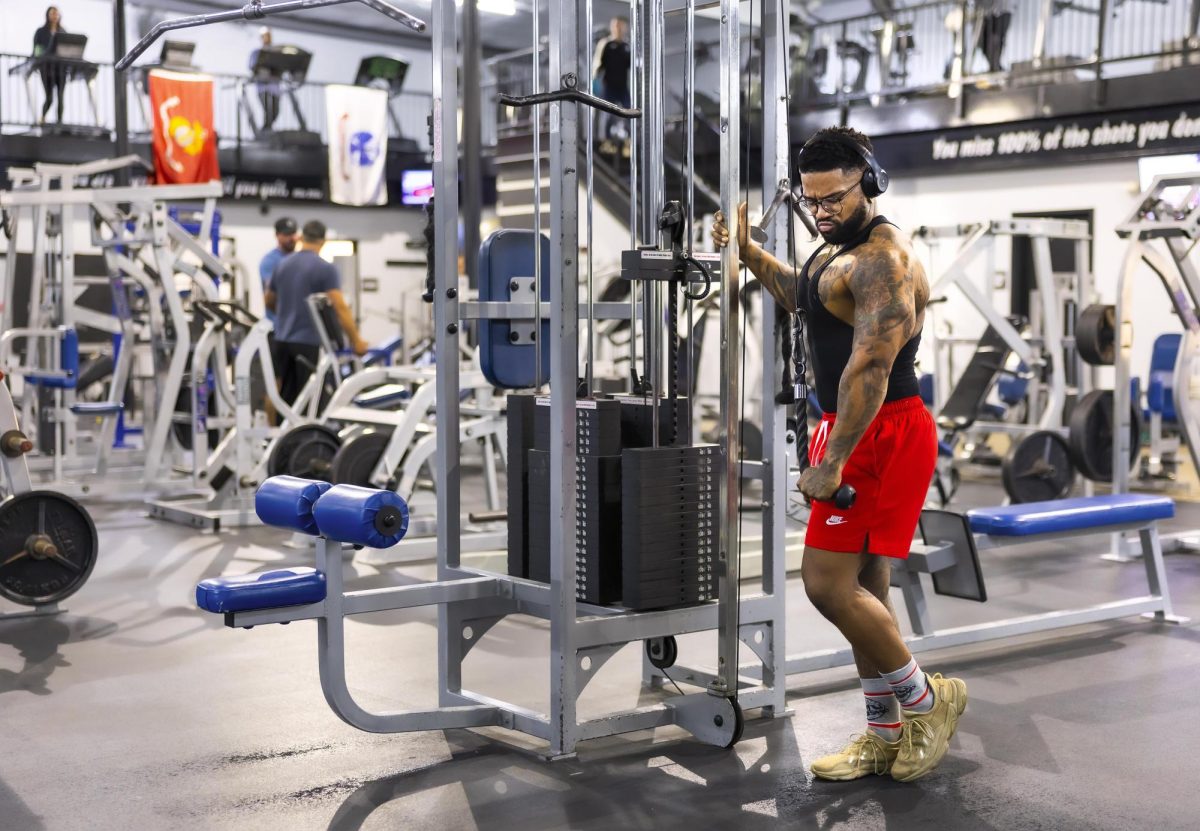Their bodies pay the bills
October 29, 2008
French and theater freshman Erica Chappell used to make up to $800 a week as an exotic dancer. She no longer dances because of a heavy courseload this semester, but says she loves dancing and plans to start again. Photo by Allie Garza | Staff
By Megan Hurt
Over the summer Erica Chappell found a job that allowed her to make an average of $800 a week while doing something she loved. She could go to work in the evening, attend classes during the day, use a fun fake name, play dress up and dance on a stage.
Chappell, a French and theater freshman, found a well-paying job as an exotic dancer.
“I thought dancing looked like fun,†Chappell said. “I mean, who gets paid to dance and have fun? It’s a very interesting job.â€
With recent increases in tuition and the U.S. economy in a recession, many college students like Chappell are discovering unique opportunities to make fast money by using the resource they were born with — their bodies.
Nude modeling, donating body fluids like plasma and sperm, and participating in medical research studies provide students quick paychecks for little work.
Because college students have not completed a degree and have to schedule work around classes, there are fewer jobs available to them that pay very well. Exotic dancers can bring home up to $1,000 a night, said Ashley Ehrhardt, a dancer who has been performing at various clubs in Lexington for over a year.
“Probably 20 percent of the dancers I know are college students,†said Ehrhardt, 24, who decided to focus on raising her two children instead of attending college.
“You hear the girls talk about what it’s like to be in school all day and then come and work all night,†Ehrhardt said. “They definitely struggle, but they need the money to keep them in school.â€
Chappell said she brought home between $2,500 and $3,500 a month while she was dancing. She recently gave up her job because she enrolled in a heavy fall courseload but said she might return to exotic dancing for the money over winter and summer breaks.
Chappell knows people will see her job as distasteful, but she said she loves what she is doing and gets support from most of her friends.
“Some of my friends like that I do it and some of them hate it,†Chappell said. “For me, it’s a fun job.â€
Students have found an alternative to exotic dancing that comes with all the nudity, observant audiences and fast money. Only instead of dancing, they’re posing.
Nude modeling for art classes at UK pays between $10 and $15 an hour, said Dawn Graham, an art studio graduate student.
“A lot of art students (are nude models), but some students and people come in from the outside community,†Graham said.
Virginia Conn, an art studio and English senior, liked how easy it was to make money modeling for art classes.
“It paid wonderfully and it was only once or twice a week,†Conn said
But not all modeling opportunities require students to strip down. Crystal Burton, a nursing student at Bluegrass Community and Technical College, said she makes between $25 and $35 an hour for promotional fashion modeling jobs.
The downside of this type of work, Burton said, is its inconsistency.
“Sometimes you have more work than other times,†she said. “I get offered jobs all the time, but it’s only about what I can accept.â€
Burton said she does not rely on fashion modeling as a steady income, but to help pay some of the bills or save for special expenses.
The body has more to offer a student looking for quick money than what is on the outside. Students also use what their bodies produce, like plasma, eggs and sperm for extra cash.
Blake Giles, a secondary education and English senior, was overwhelmed as a freshman in 2005 by the costs of textbooks. A friend gave him the idea to donate plasma to raise enough money in a couple of weeks to pay for his textbooks.
“Needles don’t bother me, and I had given blood before, so I thought this is easy money,†said Giles, who estimates he has donated plasma over 30 times.
Giles said he donates once a week during times when he needs extra money but doesn’t as much when he’s caught up on his bills.
“If my paycheck wasn’t coming in till Friday and I needed gas on Tuesday, I would go and donate plasma,†Giles said.
First-time plasma donors are pre-screened for any blood illnesses and undergo a physical exam, according to FDA regulations. After the first visit, donors are allowed to donate plasma once every two days but no more than two times a week, regulations state.
At ZLB Plasma in Lexington, where Giles donates, donors are compensated $40 for the first two visits and then $20 for each visit after that.
While plasma is an opportunity for both male and female students, women can make large amounts of money donating eggs.
The average egg donor makes $4,000 per donation, according to a survey published in 2007 in “Fertility and Sterility,†an international medical journal for doctors. Compensation amounts are varied by race, education and age of the egg donor.
Lizzie West, the Donor Ovum program coordinator at the Cincinnati Institute for Reproductive Health, which matches egg donors with potential parents, said on average one-third of the women donating eggs are college students. Because of their age, college students are the most prized donors.
There are some drawbacks to donating eggs, said Greg Moore, director of University Health Services. The procedure can be painful and any damage to the woman’s ovaries — while unlikely — could result in infertility if the organ has to be removed, Moore said.
The medication given to a donor to overstimulate her egg production can also be risky, Moore said.
Male students can take advantage of sperm donation to help pay the bills.
Men who participate as sperm donors are required to donate their sperm twice a week for nine months, each sample paying $40, according to Cryobiology, Inc., a sperm bank in Columbus, Ohio. Most men stay in the program for around a year and a half, said Donna Ridder, lab supervisor of Cryobiology, Inc.
About 90 percent of men donating sperm are college students, Ridder said.
“College (students) need to find an income that has the shortest time commitment as possible,†Ridder said. “It’s about the extra money with a low-time trade-off.â€
Sperm donors receive significantly less money than women get for donating eggs, something Moore said is directly correlated with the risks involved in donation and the amount of money a donor receives.
“Donating sperm is painless, while donating eggs involves pain and risks, which reflects the amount of money being paid for both,†Moore said.
Jordan Brown, an English senior, said he would have no problem donating sperm for the extra cash.
“As a college student who lacks a certain amount of funding, I would participate,†Brown said. “It’s helping out families who can’t have children on their own; I don’t see anything innately wrong about it. Right now I’m not trying to have kids myself and the money would be helpful.â€
Students are also finding there are opportunities to make fast money by donating their bodies to medical research at UK. There are opportunities through the UK Clinic and various research departments for students to participate in paid research studies.
In 2001, the UK Medical Center was chosen as the location to test the effects of an experimental smallpox vaccine on humans. The center has since started recruiting people from the community to test the vaccine, including UK students like Chris Ward.
After hearing about the study from a friend, Ward decided to let the research team inject him with the experimental vaccine that contained a weak strain of the smallpox virus. Ward, then a sophomore, let the clinic take blood samples once a week for 11 weeks to make sure the smallpox vaccine was not harmful to his body and was safe for the general public.
For letting the clinic use him as a lab rat for three months and subjecting his body to potential harm, Ward said he was paid $800.
“I definitely thought it was worth it,†he said.
The Psychology Department has been conducting research on the effects of alcohol for over the last 10 years, and 85 percent of the people they have recruited have been students, said Jamie Blackburn, research coordinator for the UK Psychology Department.
“When we bring someone in, we make sure they can handle the amount of alcohol we give them,†Blackburn said. “They have to drink socially and be able to handle the dose.â€
Participants in the Psychology Department’s alcohol study are compensated $30 for each session, and some students are given the opportunity to participate in up to seven sessions.
“Students will realize after doing one study that this is pretty easy money, so they want to come back,†Blackburn said. “Most students come in around Christmastime and Spring Break for that extra cash.â€





